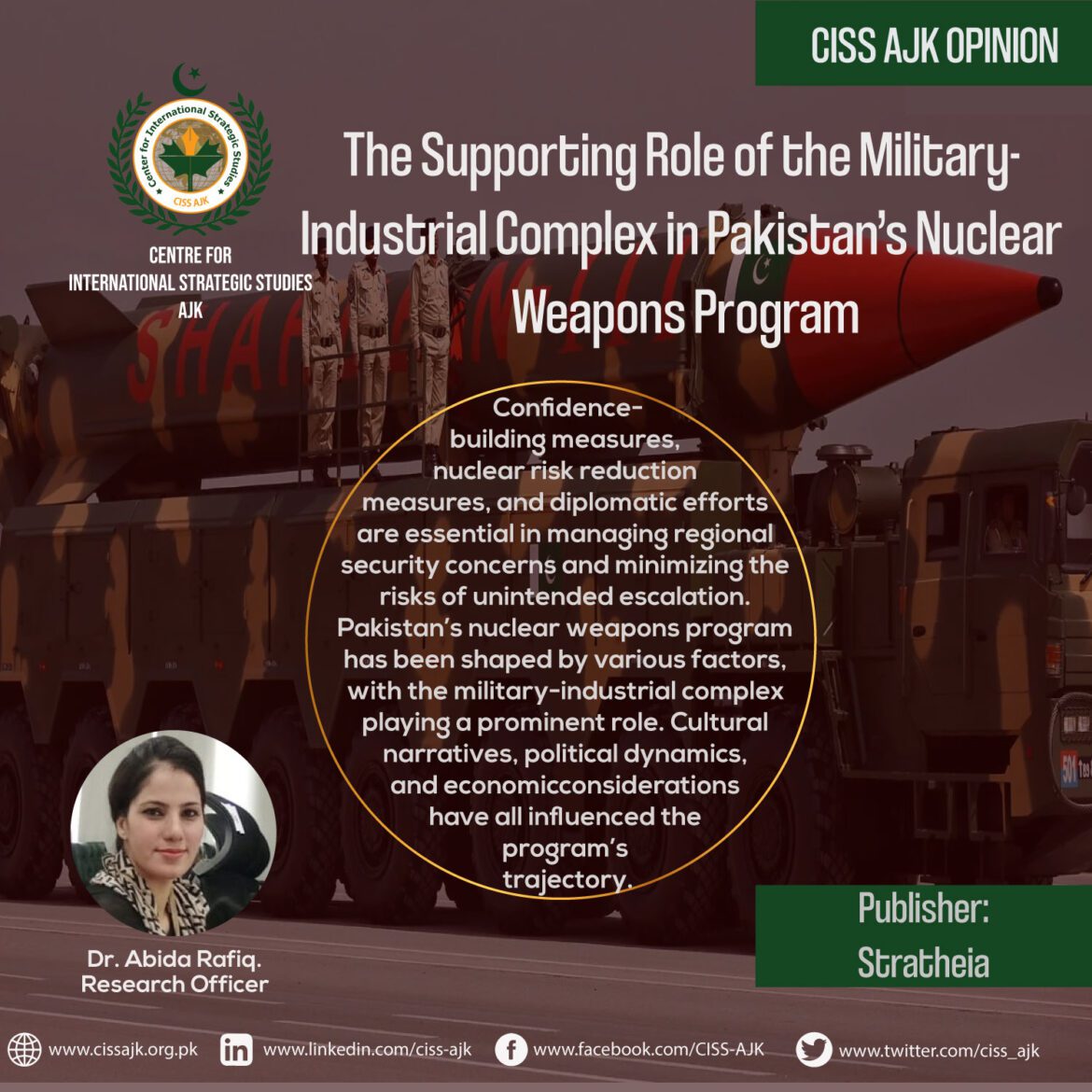796
The term “military-industrial complex” was indeed coined by U.S. President Dwight D. Eisenhower in his Farewell Address on January 17, 1961. He highlighted the need to maintain a balance and avoid the undue influence of the military-industrial complex on national policy and decision-making.


The military-industrial complex in Pakistan has played a significant role in the country’s defense capabilities, technological advancement, and economic development.It has contributed to the indigenous production and modernization of defense equipment, including weaponry, aircraft, naval vessels, and communication systems. This has helped Pakistan enhance its defense preparedness and maintain a credible regional deterrent. Pakistan’s nuclear weapons program has long been a global interest and concern. Behind this program lies a complex interplay of various factors, with the military-industrial complex playing a significant supporting role. This opinion article delves into the multidimensional aspects of Pakistan’s nuclear program, examining the cultural, political, and economic perspectives that have shaped its trajectory. From a cultural standpoint, Pakistan’s pursuit of nuclear capabilities can be understood through national identity and collective memory. Historical experiences, including the trauma of partition and subsequent conflicts with India, have left an indelible mark on the nation’s psyche. This has engendered a belief in the necessity of a nuclear deterrent to safeguard national security and preserve sovereignty.
The cultural narratives surrounding security concerns and regional rivalries have further solidified the public’s support for the nuclear program.Pakistan’s nuclear weapons program cannot be divorced from its political dynamics. Political leadership, strategic decision-making, and the quest for national security have all played integral roles. The military-industrial complex has exerted influence through its close ties to the political establishment, shaping policy decisions related to the nuclear program. Geopolitical considerations, including the threat perception from neighboring countries and the pursuit of strategic parity, have also driven Pakistan’s atomic choices. Balancing domestic politics, international pressures, and the interests of the military-industrial complex has been a delicate task for successive governments. From economic insight, critics argue that the diversion of significant resources toward nuclear development has strained the country’s economy, diverting funds that could have been allocated to vital social and developmental needs. However, proponents argue that the military-industrial complex associated with the nuclear program has provided economic benefits, including technology transfer, job creation, and investment in the defense industry. Assessing the actual economic impact requires a nuanced analysis of costs, benefits, and long-term sustainability. While Pakistan’s pursuit of nuclear weapons is driven by its security imperatives, rooted in the geopolitical dynamics and regional security challenges it faces, as a nuclear-armed state, Pakistan seeks to ensure its national security, deter potential adversaries, and maintain strategic stability.
Constructive engagement and dialogue between Pakistan and its neighbors, particularly India, can reduce tensions and enhance strategic stability.Confidence-building measures, nuclear risk reduction measures, and diplomatic efforts are essential in managing regional security concerns and minimizing the risks of unintended escalation. Pakistan’s nuclear weapons program has been shaped by various factors, with the military-industrial complex playing a prominent role. Cultural narratives, political dynamics, and economic considerations have all influenced the program’s trajectory.

The author is a Research Officer at the Center for International Strategic Studies (CISS) AJK. Her research focuses on arms control and disarmament. She can be reached at abi186@yahoo.com



